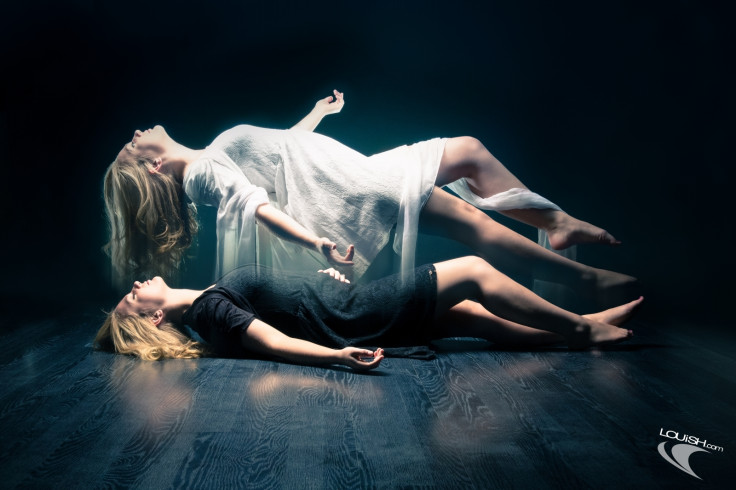What causes bizarre out-of-body experiences? Scientists blame the inner ear
Spooky out-of-body experiences are often seen in people who suffer from dizziness.

Problems of the inner ear, characterised by symptoms such as vertigo and dizziness, may play a central role in creating out-of-body experiences.
People who experience this strange phenomenon typically have the sensation that their awareness is located outside their physical body, and that they are seeing their environment from an elevated viewpoint. The experience can last a couple of seconds to a couple of minutes depending on the person.
While out-of-body experiences had been observed previously among patients suffering from epilepsy or migraine, what was triggering them remained unclear. Many scientists had looked for clues, identifying the vestibular system – which is made up of several structures in the inner ear – as a possible reason for out-of-body experiences.
"Until now, we suspected that vestibular disorders were involved in out-of-body experiences, based on case studies and observations made on patients suffering from neurological problems," Christophe Lopez, a research scientist at the French National Centre for Scientific Research (CNRS), told IBTimes UK.
"During a fit, some epileptic patients had for example reported traditional symptoms of out-of-body experiences, such as the sensation that they were leaving the physical boundaries of their but also vestibular symptoms such as floating sensations. We wanted to confirm our intuition that the vestibular system was involved in these experiences, studying it at a larger scale, with more people".
Investigating the inner ear
In a study now published in the journal Cortex, Lopez and his colleague Maya Elzière recruited 210 patients who had seen doctors for dizziness, a problem characteristic of vestibular system disorders. They also recruited 210 healthy controls.
The participants filled in questionnaires to find out if they had had out-of-body experiences, and to assess how much they scored for depression, anxiety and depersonalisation-derealisation - changes in self-awareness which may include feeling as if their thoughts and actions were not their own.
The researchers found that 14% of people with dizziness had experienced out-of-body experiences, but only 5% of healthy controls had done so. Higher levels of depression, anxiety or depersonalisation as well as neurological problems like migraines were also a good predictor of out-of-body experiences for participants in the 'dizziness group'. In the control group, only high scores of depersonalisation-derealisation were a robust predictor of out-of-body experiences.
The study thus suggests that inner ear problems are involved in creating out-of-body experiences. When these problems are combined with anxiety, depression and migraines, or with high scores of depersonalisation-derealisation, out-of-body experiences are more likely to occur.
"There is a clear association between suffering from vestibular disorders, where the vestibular system sends incorrect information to the brain and having out-of-body experiences. Why people with no vestibular system problems sometimes experience this is less clear, but it could be down to a multitude of factors including stress, isolation, meditation or taking certain drugs," Lopez explained.
Lopez wants to understand more about out-of-body experiences, because they might be a more common feature of vestibular disorders than previously thought. While they are not typically considered dangerous for patients, they can be when they occur in certain situations. Lopez has for example already had a patient experiencing the phenomenon while he was driving his car. Understanding where out-of-body experiences originate could help reduce any potential risk of accidents.
© Copyright IBTimes 2025. All rights reserved.






















